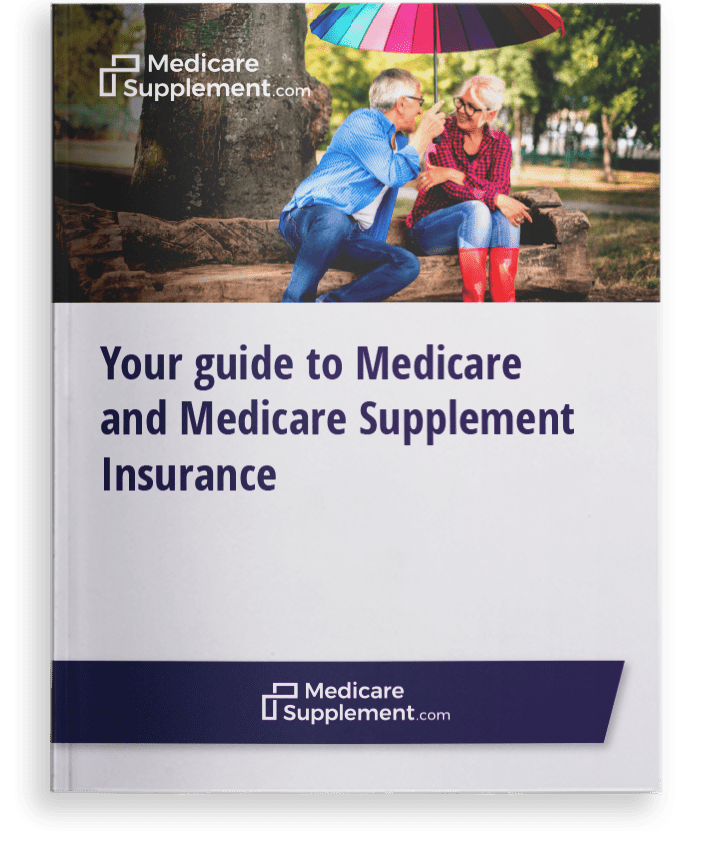Coverage
Does Medicare Cover Open Heart Surgery?
Learn how Medicare covers open heart surgery and how much you might expect to pay for the procedure.
Original Medicare (Medicare Part A and Part B) and Medicare Advantage (Part C) typically cover open heart surgery when it’s medically necessary. Continue reading to learn more about how Medicare covers open heart surgery, the out-of-pocket costs involved and how a Medicare Supplement (Medigap) plan can help cover the costs.
Compare Medigap plans in your area.
Find a planOr call now to speak with a licensed insurance agent:
Which Part of Medicare Covers Open Heart Surgery?
The different parts of Medicare insurance can contribute coverage to open heart surgery.
- Medicare Part A covers inpatient care cost during your hospitalization for open heart surgery. This includes the cost of your semi-private hospital room, general nursing care and meals.
- Medicare Part B covers your open heart surgery procedure, along with cardiac rehab sessions.
Part B may also cover any durable medical equipment and supplies you may need to use at home following your surgery such as a walker or shower chair. - Medicare Part C, or Medicare Advantage, covers the same benefits offered by Medicare Part A and Part B and may include additional benefits that may be useful for open heart surgery such as prescription drugs, home-delivered meals, fitness programs and more.
- Medicare Part D can provide coverage for prescription medications needed before and after open heart surgery.
- Medicare Supplement Insurance, or Medigap, covers many of the out-of-pocket charges required by Part A and Part B for open heart surgery, such as deductibles, copayments and coinsurance.
How Does Medicare Cover Open Heart Surgery?
Open heart surgery requires an inpatient hospitalization. Once you are admitted for your surgery, you will begin a benefit period that requires a $1,632 deductible in 2024.
Once you meet your Part A deductible, you will not owe any Part A copayments or coinsurance for the next 60 days of inpatient care received within the same benefit period. This includes stays at a hospital or an inpatient rehab facility.
If you transition to a skilled nursing facility after your open heart surgery, you will not owe any Part A coinsurance for the first 20 days of inpatient care within the same benefit period.
Medicare Part B requires an annual deductible of $240 in 2024. Once that deductible is met, you will typically be responsible for a 20% coinsurance charge applied to covered services and items. Medicare will pay for the remaining 80% of those charges.
After satisfying your Part B deductible, you can generally expect to pay 20% coinsurance charges for:
- Doctor services
- Doctor’s appointments
- Outpatient cardiac rehabilitation
- Durable medical equipment
You will likely be prescribed prescription medications both before and after your surgery, which may be covered by a Medicare Advantage Prescription Drug Plan or a Medicare Part D plan. These plans are sold by private insurers so the amount of coverage provided will vary by plan.
Lastly, a Medigap plan can provide open heart surgery coverage for:
- Medicare Part A deductible
- Part B deductible (only for those who were eligible for Medicare before Jan. 1, 2020)
- Part A and Part B coinsurance and copayments
- Skilled nursing facility care coinsurance
If you are enrolled in a Medicare Advantage plan, your surgery will be covered as long as it would be covered under Original Medicare. Your deductible, copayments and coinsurance may differ from Original Medicare.
Compare Medigap plans in your area.
Find a planOr call now to speak with a licensed insurance agent:
How Much Does Open Heart Surgery Cost?
There are around a dozen different types of open heart surgery, so the cost can vary greatly depending on the type of procedure being performed along with other factors such as the facility and doctors involved.
Costhelper.com reports the range of open heart surgery falling anywhere between $30,000 and $200,000 without insurance in 2024.
Does Medicare Pay for Inpatient Rehab After Surgery?
It’s typical for open heart surgery patients to undergo inpatient rehabilitation. Medicare Part A covers inpatient rehab when certified as medically necessary by a doctor.
Your Part A deductible for inpatient rehab is shared with your hospital deductible, so once you meet the deductible during your hospital stay, you will continue your post-deductible coverage phase during inpatient rehabilitation.
You will have a combined 60 days of inpatient care within the same benefit period between hospital stays and stays at an inpatient rehabilitation facility which are fully covered and do not require any coinsurance.
If those 60 days are exhausted, you will begin to owe copayments of $408 per day for days 61 through 90, and $816 per day for days 91 and beyond in 2024.
After day 90, you use what are called your lifetime reserve days. You only have 60 lifetime reserve days to use for as long as you have Medicare. Once you use your 60 lifetime reserve days, you're responsible for the full cost of inpatient stays that last longer than 90 days. A Medicare Supplement plan can help pay for these costs.
Inpatient rehabilitation coverage includes a semi-private room, nursing services, meals, prescription drugs and the therapy itself. Rehabilitation for open heart surgery can include physical and occupational therapy.
How Does a Medicare Supplement Plan Help with Open Heart Surgery?
There are a number of ways in which a Medicare Supplement plan can help with open heart surgery coverage.
Deductibles
The Medicare Part A inpatient deductible of $1,632 per benefit period can be fully covered by a Medigap plan in 2024. The Part B deductible of $240 per year can be covered for those who were eligible for Medicare before Jan. 1, 2020, if they have Medigap Plan F or Plan C.
Coinsurance and Copayments
The daily Part A copayments you can incur with stays at a hospital, skilled nursing facility or rehab facility can be fully covered by a Medigap plan, as can the Medicare Part B coinsurance charged for doctor’s appointments and durable medical equipment.
First Three Pints of Blood
Open heart surgery requires a blood transfusion, and Original Medicare does not cover the first three pints of blood used. But a Medigap plan can provide full coverage of those first three pints that Original Medicare will not cover.
Excess Charges
Medicare Part B allows certain health care providers to charge up to 15% more than the Medicare-approved amount. These are called “excess charges,” and a Medigap plan can cover them in full.
Out-of-Pocket Limit
Original Medicare has no annual out-of-pocket limit, and an open heart surgery can cost tens or even hundreds of thousands of dollars. Even after Medicare pays its share, you can still be responsible for many thousands of dollars in the form of deductibles and copayments.
Two Medigap plans provide an annual out-of-pocket limit that can protect you from the exorbitant costs associated with open heart surgery. Plan K has an out-of-pocket limit of $7,060 in 2024, while Plan L has an out-of-pocket limit of $3,530.
Scroll to the right to continue reading the chart
Medicare Supplement Benefits
Part A coinsurance and hospital coverage
Part B coinsurance or copayment
Part A hospice care coinsurance or copayment
First 3 pints of blood
Skilled nursing facility coinsurance
Part A deductible
Part B deductible
Part B excess charges
Foreign travel emergency
| Medicare Supplement Benefits | A | B | C* | D | F1* | G1 | K2 | L3 | M | N4 |
|---|---|---|---|---|---|---|---|---|---|---|
| Part A coinsurance and hospital coverage | ||||||||||
| Part B coinsurance or copayment | 50% | 75% | ||||||||
| Part A hospice care coinsurance or copayment | 50% | 75% | ||||||||
| First 3 pints of blood | 50% | 75% | ||||||||
| Skilled nursing facility coinsurance | 50% | 75% | ||||||||
| Part A deductible | 50% | 75% | 50% | |||||||
| Part B deductible | ||||||||||
| Part B excess charges | ||||||||||
| Foreign travel emergency | 80% | 80% | 80% | 80% | 80% | 80% |
* Plan F and Plan C are not available to Medicare beneficiaries who became eligible for Medicare on or after January 1, 2020. If you became eligible for Medicare before 2020, you may still be able to enroll in Plan F or Plan C as long as they are available in your area.
+ Read moreWill Medicare Pay for Heart Bypass Surgery?
Heart bypass surgery, or coronary bypass surgery, is a type of open heart surgery that creates a new path for blood to flow around a blocked or partially blocked artery in the heart. This is the most common type of open heart surgery and is covered by Medicare in the same fashion as outlined above.
How Do I Know if a Surgery is Covered by Medicare?
Medicare generally covers surgeries that are considered by a doctor to be medically necessary and are FDA approved. If you are unsure about whether or not a surgery will be covered by Medicare, you may call 1-800-MEDICARE (1-800-633-4227) for help.
If you are enrolled in a Medicare Advantage plan, call the phone number on your Plan ID card to speak with a representative from your plan about surgery coverage. It’s important to remember that Medicare Advantage plans are required by law to cover everything included in Part A and Part B.
Learn more about how a Medicare Supplement plan can help cover the potentially high out-of-pocket Medicare costs you might face when having open heart surgery. Call to speak with a licensed insurance agent today to compare plan costs, or request a free online plan comparison.
Compare Medigap plans in your area.
Find a planOr call now to speak with a licensed insurance agent:

Get a Free Medicare Guide!
Enter your email address and get a free guide to Medicare and Medicare Supplement Insurance, as well as important Medicare news and tips. We promise to never send you spam – just helpful content!
By clicking "Get your guide" you are agreeing to receive emails from MedicareSupplement.com.

